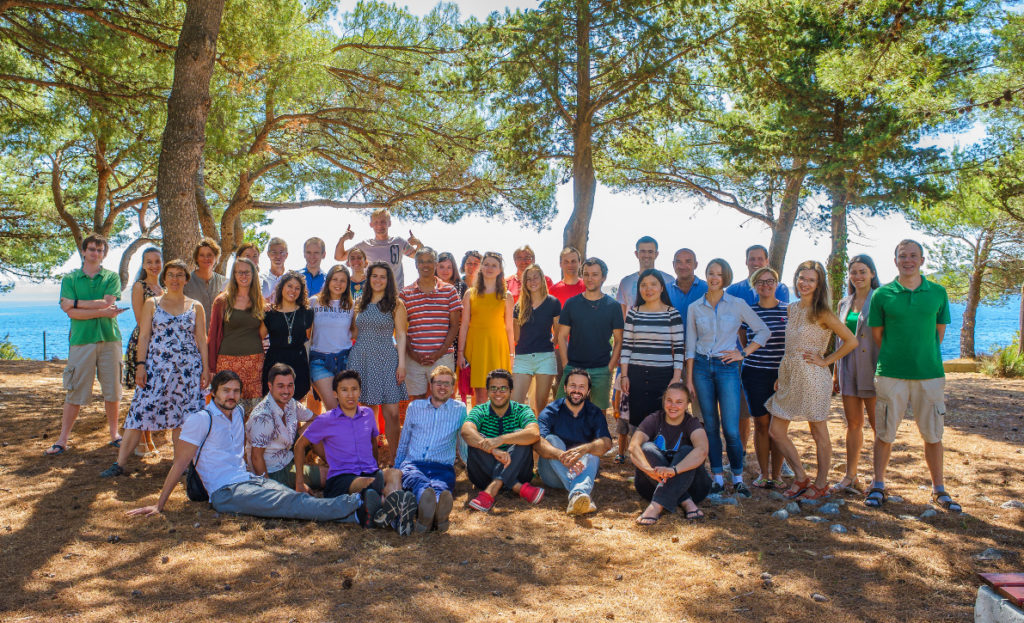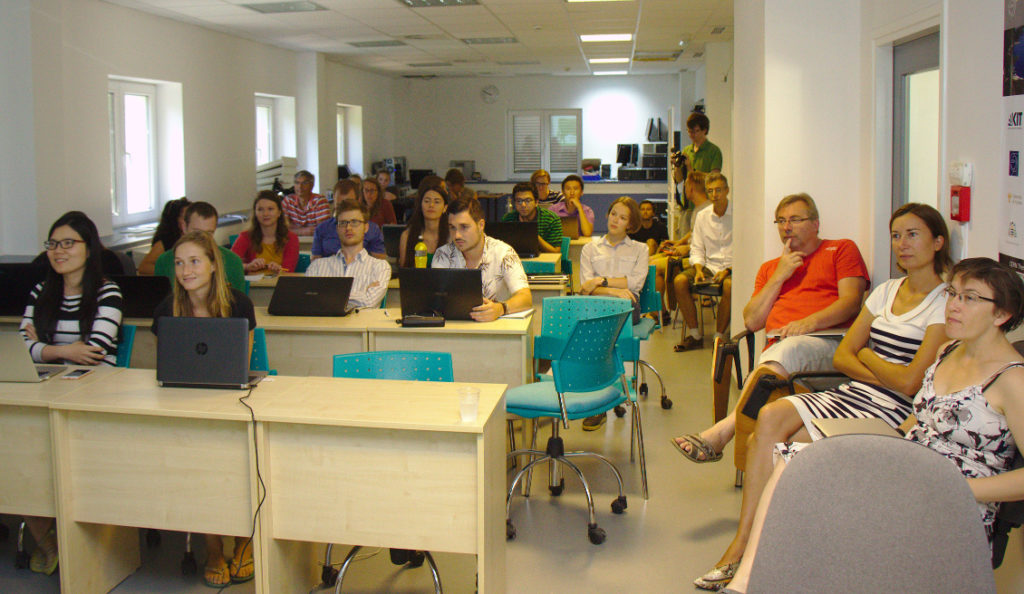The 2016 Research Summer School in Statistical Omics

We have just returned from Split, Croatia, where we organised and co-sponsored the third Research School in Statistical Omics (RSSSO2016). With this Summer School we aim to train young researchers (at bachelor, master or PhD level) with a bio{logical,medical,chemical} background and interest in quantitative statistical methods to become the next generation of life scientists; these should be the people who
- know about the technologies used to generate the various types of omics data,
- have a solid grasp of both the statistical and computational methods for analysing these ever-increasing amounts of data, and
- have the appropriate biological and/or biomedical knowledge to understand and asses the proper value of the outcome of their analyses, as well as to be able to ask meaningful questions and envision possible applications of those results in e.g. (personal) medicine.
We try to obtain these objectives by providing lectures and practical sessions, which, almost from the start, are interwoven with training-through-research by working on real scientific projects that are part of the day-to-day work of the RSSSO staff.
The base lectures cover topics on the ethical handling of (human) data, basic and advanced statistics, genome-wide association studies (GWAS), methylomics, usage of the Linux command line, scripting in languages like Bash and R, and the usage of Git for version control and reproducible research. The invited lecturers talked about quantitative genetics, glycomics, translation of genetic data into biology, molecular mechanisms of ageing, methodological advances in deciphering psychiatric illnesses, the gut microbiome and building biobanks.
This year’s RSSSO was centred around four research projects involving genomics, glycomics, transcriptomics and metabolomics data:
- Applications of Next Generation Sequencing in Cattle, led by Chad Harland from the GIGA-R centre, Université de Liège;
- Genetic risk profiling within and between traits, led by Peter Joshi (Usher Institute of the University of Edinburgh);
- Integration of several omic sources for phenotypic prediction, led by Mar Rodríguez-Girondo and Jeanine Houwing from the Leiden University Medical Centre;
- Computational and visualisation methods for functional genomics analysis of disease-associated loci, led by Dmitry Alexeev (Novosibirsk State University and Knomics LLC).

Conference day at the 2016 Research Summer School in Statistical Omics
The 2016 list of participants consisted of 6 PhD students, 8 MSc students and 2 BSc students with 8 nationalities. To this we added a team of 12 staff members, 3 visiting scientists and 8 visiting lecturers, which added another 5 nationalities to the mix.
On the last day of the School, all four project teams as well as the visiting scientists presented their work on the RSSSO closing conference. The return to ‘normal life’ started with the farewell barbecue.
It was great to see these bright and enthusiastic young people eager to learn more, willing to go the extra mile (i.e. some teams worked until after 23:00h!), and having a good time in general. What surely helped with the latter is the fact that the School was held at the Mediterranean Institute of Life Sciences (MedILS) on the Adriatic coast near Split, Croatia.
In short, we had an excellent time and we look forward to the next RSSSO. And last, but not least, we thank the students for participating, the (invited) lecturers for sharing their knowledge, the project leaders and tutors for their continued efforts, MedILS for hosting us for the third time, and our co-sponsors for making this RSSSO possible.

Split harbour, Croatia
No Comments